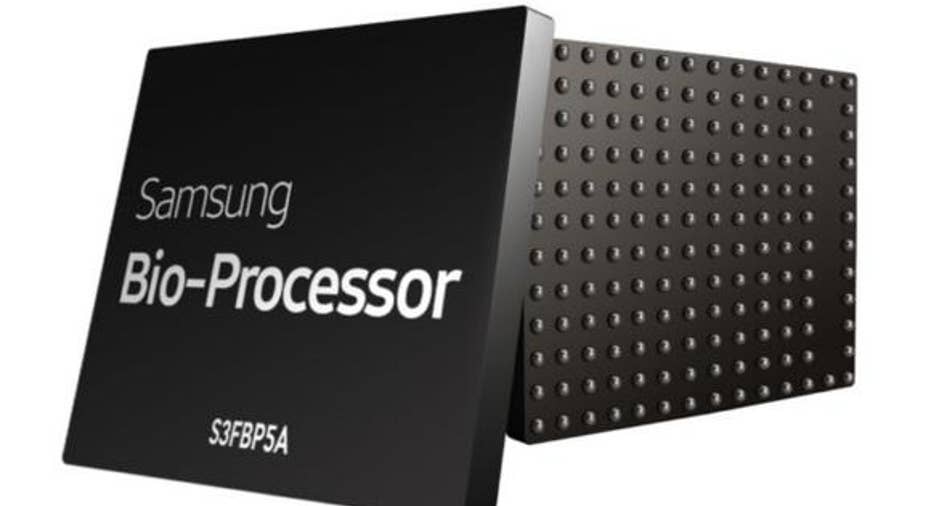Samsung's Biggest Wearable Opportunity Isn't in Smartwatches

Samsung hasn't been at the top of its wearable game, to say the least. The company introduced its first smartwatch, the Galaxy Gear, back in 2013 to terrible reviews.It followed that up with the Gear 2, which runs the company's own Tizen software instead of Android, but that device hasn't fared much better.
Meanwhile, Apple only entered the wearable tech space nine months ago and it's already dominating the competition and outpacing Samsung. According to data from IDC, Apple shipped 13 million smartwatches in 2015, while Samsung shipped just 1.7 million Tizen-powered units.
Though there's still time for Samsung to bounce back in the smartwatch space, it appears the Korean conglomerate is taking a different approach to the wearable market: making processors for other companies' devices. The company recently debuted its new Bio-Processor for fitness trackers, which could be the beginning of Samsung's biggest wearable tech opportunity yet.
Image source: Samsung.
What the Bio-Processor doesThe company's new Bio-Processor is designed to power fitness trackers that measure body fat, skeletal muscle mass, heart rate, skin temperature, and stress levels. What's noteworthy about the chip is that when implemented into wearable devices, it could improve the level of health tracking currently available. For example, Apple has touted the fitness tracking aspect of its Apple Watch, yet it really only has the ability to track a user's heart rate.
Samsung says that its Bio-Processor "can process five different biometric signals, is the most versatile health and fitness monitoring chip available on the market today and is expected to open up many new health-based service options for our customers."
How it could help SamsungThe company could keep this Bio-Processor all to itself, put in the next iteration of the Gear smartwatch or fitness tracker, and call it a day. But instead, Samsung has set up several reference platforms for other companies to demonstrate how it can be used.
They include a wristband, board, and a patch which the company says can be used to demonstrate the processor's superior measurement of multiple data variables in very small devices.Samsung also mentioned that the Bio-Processor is already in mass production and will be in health and fitness devices starting this year.
Samsung is essentially inviting other wearable tech makers to see who how great its new Bio-Processor is, so that they can add it to their new devices soon. And it's coming at the perfect time.
Over the next four years, sales of wearable tech devices are expected to generate $31 billion in revenue. Samsung has already learned that the consumer market isn't an easy place to sell devices, so it's trying to tap the processor market instead.
The company has built a successful semiconductor business for itself, even as its mobile device profits have begun to slip. If it can transition its success with processors into a lucrative wearable processor business, the company won't need to rely on selling its own devices in order to benefit from wearables.
It's impossible to say at this point how well the Bio-Processor will do, or how many companies will use it. But I think that Samsung is moving in the right direction here. The company has learned from its sinking mobile revenue that competing in the hardware space may not be the best way for it to make money. Instead, Samsung'sprocessorscould hitch a ride with other hardware manufacturers to benefit from the burgeoning wearable revolution.
The article Samsung's Biggest Wearable Opportunity Isn't in Smartwatches originally appeared on Fool.com.
Chris Neiger has no position in any stocks mentioned. The Motley Fool owns shares of and recommends Apple. Try any of our Foolish newsletter services free for 30 days. We Fools may not all hold the same opinions, but we all believe that considering a diverse range of insights makes us better investors. The Motley Fool has a disclosure policy.
Copyright 1995 - 2016 The Motley Fool, LLC. All rights reserved. The Motley Fool has a disclosure policy.



















